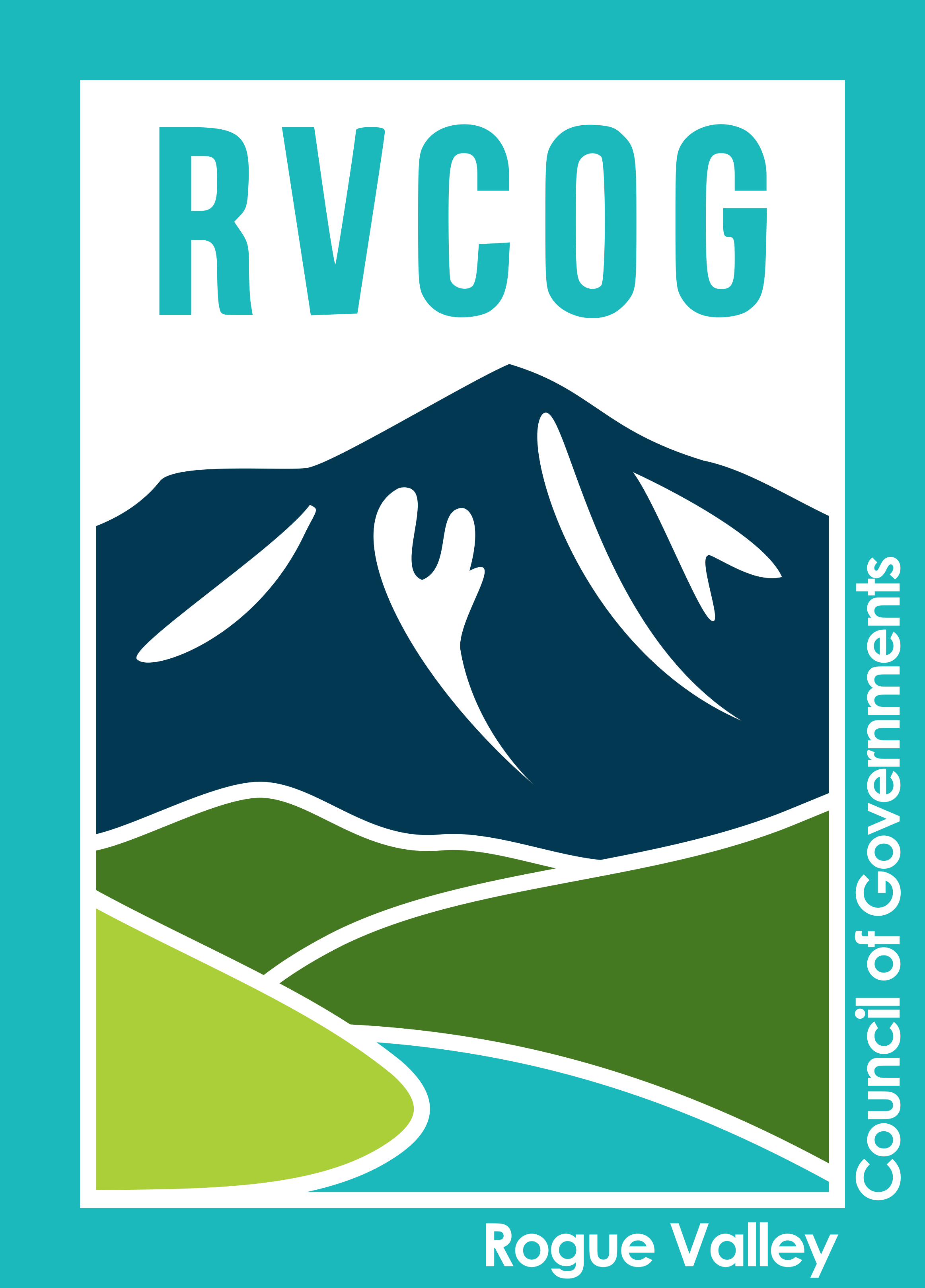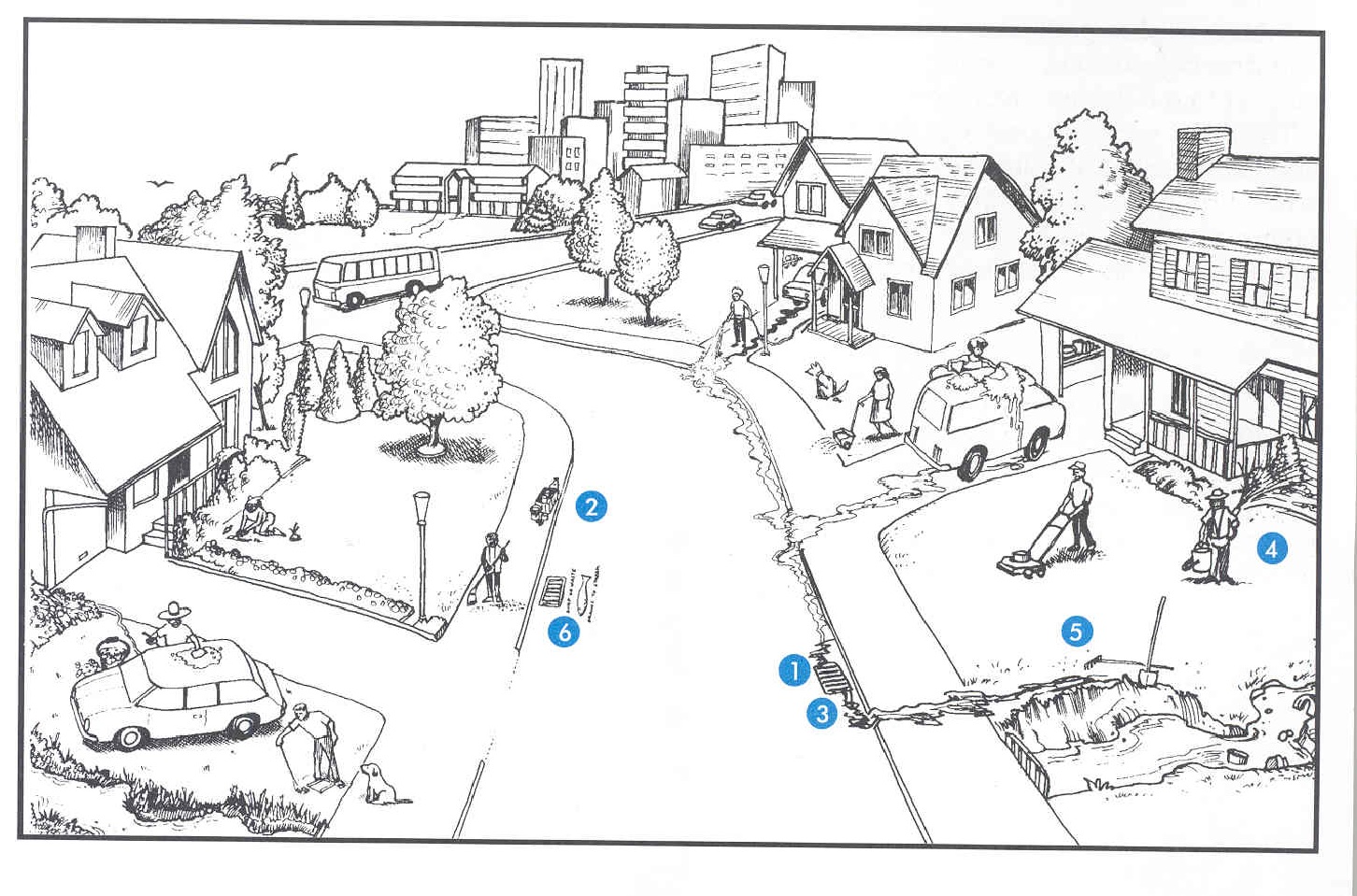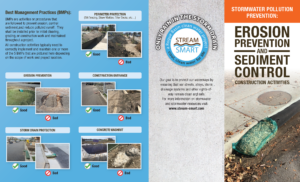The goal of this page is to provide an overview of selected key concepts of stormwater and provide information and resources to help us manage urban runoff.
What is Stormwater Runoff?
Stormwater runoff is flow that is generated from rain or snow that falls on hard surfaces (e.g., roof tops, driveways, roads, and parking lots). The flow (runoff) generated from these surfaces enters local streams, rivers, canals, and drainageways during and immediately following a storm event instead of soaking into the ground. This causes a problem because the ground can no longer act as a sponge absorbing water or filter pollutants. As a result, more contaminated water enters streams and rivers quicker, resulting in flooding, erosion, and degraded water quality.
Urbanization greatly increases the amount of runoff generated (pictured below).

Image courtesy of Portland Bureau of Environmental Services
Why is it a Problem?
Stormwater can pick up debris, chemicals, dirt, and other pollutants before flowing into a storm sewer system or directly to a lake, stream, river, wetland, or coastal water. Anything that enters a storm drain is discharged untreated into the waterbodies we use for swimming, fishing, and for providing drinking water (EPA 2003). As a result, anything that enters storm drains in the Bear Creek Watershed can flow into Bear Creek, to the Rogue River, and to the Pacific Ocean. It’s all connected!
Impacts of Stormwater
Stormwater runoff can have many adverse effects on plants, fish, animals, and people beyond flooding.
Information Highlights
The Value of Trees – See how trees tame stormwater (link) or by clicking the picture below.
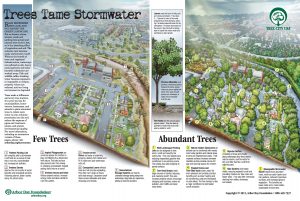
A Stormwater Overview Video – From Clark County, Washington. Click Here to Watch. Note: Links to YouTube
Fact Sheets – Low Impact Development “Barrier Buster” Factsheets Series (scroll down on the link page to locate)
How to Design a Rain Garden – How to Design and Construct a Successful Professional Rain Garden
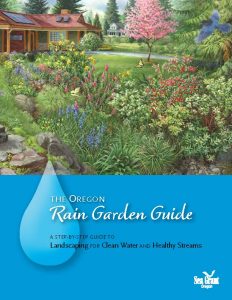
Rain Garden Maintenance – Field Guide for Maintaining Rain Gardens, Swales and Stormwater Planters (O.S.U. Extension)
Stormwater Management
Local stormwater management is based on regulations from the Clean Water Act under the NPDES Phase II Program. Management programs are designed to meet the six minimum control measures listed below. Many of the concepts incorporated are based on mimicking or reestablishing natural functions.How Stormwater is Managed
Six minimum control measures:
- Public Education and Outreach
- Public Involvement and Participation
- Illicit Discharge Detection and Elimination
- Construction Site Runoff Control (Erosion Prevention and Sediment Control)
- Post Construction Runoff Control
- Pollution Prevention/Good Housekeeping
Specific Management Focus Areas
Pet Waste and Water Quality
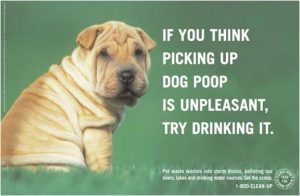 Even if your pets don’t poop directly into water sources, their waste can still affect the community, local streams, and the Rogue River. Storm drains are directly connected to the nearest local stream or river. Any pet waste that washes into or is deposited directly into roadside ditches or storm drains ends up in local waters untreated. Along with polluting the water with bacteria and parasites, pet waste that finds its way to natural bodies of water promotes unwanted algae and weed growth. For more information, visit the links below.
Even if your pets don’t poop directly into water sources, their waste can still affect the community, local streams, and the Rogue River. Storm drains are directly connected to the nearest local stream or river. Any pet waste that washes into or is deposited directly into roadside ditches or storm drains ends up in local waters untreated. Along with polluting the water with bacteria and parasites, pet waste that finds its way to natural bodies of water promotes unwanted algae and weed growth. For more information, visit the links below.
How to Properly Dispose of Pet Waste
While there are several methods to dispose of pet waste, some are better than others. Burying waste is one of the most natural and safest ways to get rid of excrement. A hole with a depth of about six inches can keep waste safely out of sight and reduce the chances that it will attract other animals. Flushing pet waste is also an acceptable option.
Remove all remnants of waste from areas near water. This includes drains, ditches, and wells. Avoid attempting to compost pet waste in a garden, as the excrement will not naturally break down and can pose a health hazard to vegetable beds.
Washing Cars
Fish Friendly Car Wash Info
Car Wash Kit – Puyallup, WA
https://www.youtube.com/watch?v=5Y2LoDiwEeQ
Car Wash Kit – Eugene
https://www.youtube.com/watch?v=cZy2Zo5wxuE&feature=youtu.be
Reference Materials, Videos, Brochures, and News Articles
Stormwater Links
Center for Watershed Protection
Portland Bureau of Environmental Services
Oregon Department of Environmental Quality
EPA Stormwater Program
Regional Coalition for Clean Rivers and Streams
Clear Choices and Clean Water
Stream Smart
